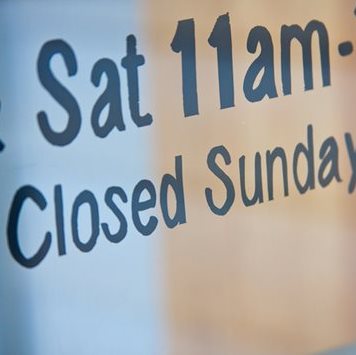The Fair Work Commission (FWC) has announced Sunday penalty rates for hospitality, retail and fast food workers will be cut.
According to the ABC, Sunday pay rates for full-time and part-time hospitality workers will be cut from 175 percent of their standard wage to 150 percent.
For fast food workers, Sunday pay for some full-time and part-time employees will be cut from 150 to 125 percent.
The penalty rates issue has been split politically, with a number of employers and industry groups backing the Productivity Commission’s proposal to cut Sunday rates, while the Labor Party and many unions have opposed any such move.
During the election campaign Prime Minister Malcolm Turnbull ruled out any changes to penalty rates in the current term of parliament, however he had previously suggested the reductions were inevitable. Also during last year’s federal campaign, The Greens called for penalty rates to be legislated.
Generally, business owners have been in support of the cuts, arguing that penalty rates are a significant roadblock to profitability. However in a conversation with Hospitality last year, Professor Ray Markey, director of the Centre for Workforce Futures and professor of employment relations at Macquarie University, said cutting penalty rates might not help productivity; conversely, the move could lead to a less willing workforce and a shortage of weekend workers.
“The AWALI survey asked if people would work on the weekends if penalty rates were cut. The majority said they only worked Sundays because the wages were good and half of them wouldn’t continue to work if penalty rates were cut,” said Markey.
“If they do reduce Sunday penalty rates to be in line with Saturday rates, I think it will have a big impact on low income employees who use those penalty rates to make ends meet. Even if employment increases, they’re unlikely to make up the lost wages through extra hours and I’m not convinced more hours will become available.”
The Australian Hotels Association (AHA) said today’s announcement is a step in the right direction.
Tourism Accommodation Australia chair, Martin Ferguson, a former ACTU president and federal tourism minister, said the FWC decision should be respected.
“From the industry point of view we haven’t got everything we want. That is the nature of the Fair Work Commission.
“We respect their decision and we will try and make it work.
“For us the objective was to modernise the award, not to abolish penalty rates, but to make it relevant to the 21st century as a means of employing more Australians.
“The hospitality and accommodation sector is seen as an industry with tremendous potential to deliver results and jobs for the Australian economy.
“We are currently experiencing the largest-ever expansion of accommodation hotels across the country, so it is imperative that workplace reforms support this growth phase.”
AHA CEO Stephen Ferguson said the AHA supports workers being remunerated extra for working on weekends and public holidays.
“Society and work patterns have changed significantly in 50 years,” Ferguson said.
“Today people expect to be able to shop, buy a meal or a drink at all hours of the day, while large numbers of workers actually prefer to work outside a ‘9 to 5’ weekday regime because it suits their lifestyle, studies or family circumstances.
“Over recent years too many businesses have closed or reduced employment on Sundays or public holidays because of the cost of penalty rates. That is bad for workers, bad for business and bad for the general public.”


Leave a comment